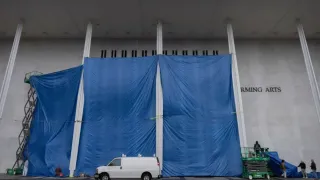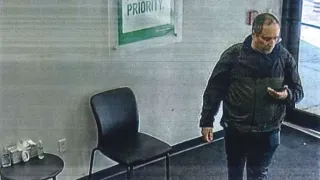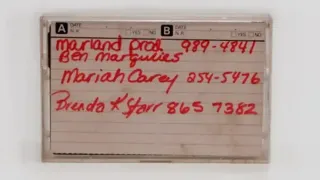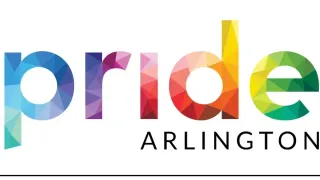February 2, 2021
Review: Melissa Errico Explores 'Desire' in Streaming Concert
Marc Keepper READ TIME: 4 MIN.
Love in the time of cholera this is not. Desire in the age of corona (and dare we say, beyond COVID?): yes, indeed!
Desire as a concept and a framing device for any piece of art always works but in early 2021, it seems particularly timely. How else to describe the yearning every person reading these words feels? Stir crazy for excitement, for concerts, for being in a crowd in a dark night club or bo�te. Heck, for simply being outside our home or studio apartment? That's desire writ large!
Enter into our homes (and devices) an engaging & charming conversation between three artists: Broadway's Melissa Errico, New Yorker essayist (and lyricist!) Adam Gopnik, and jazz pianist Tedd Firth.
Conceived as a 3-part concert series, "Desire" is the 2nd concert of 3 and is sponsored by the French Institute Alliance Fran�aise (FIAF) and recorded at FIAF's Florence Gould Hall. The concert was performed on Thursday, January 28, 2021. You can watch it here.
Far more than a formal or stuffy concert, this meditation & examination of "Desire" (as a concert) is simultaneously an easy conversation, as well as a celebration of French culture's predilections: chanson (AKA art songs), food, fashion, writing, love, and language–to describe all of the previous passions.
Highlights include all five of the Michel LeGrand songs performed. Errico conveys a heartfelt attachment to the LeGrand song "I Will Wait for You" (from the gorgeous "Umbrellas of Cherbourg" soundtrack) on behalf of her parents and that song's presence in their "emotional soundtrack." While perhaps not standard fodder for Left Bank bo�tes in 1957, the songs "A Brand New Dress" (from the musical "Coco"). Stephen Schwartz's "Meadowlark" (from the musical "The Baker's Wife") and LeGrand's own "The Way He Makes Me Feel" (from the movie "Yentl") all score points for being chic, smart & passionate choices.
These lyrics from "A Brand New Dress" have a special poignance in the time we live: "where no one knows about the word goodbye and teardrops never leave the sea." ??Adam Gopnik, in his interstitial framing remarks, reveals his strong French connection. (As a bonus, tune in to hear a lovely surprise announcement by his collaborator Melissa Errico to confirm the depth of that connection.) The cut song from Gopnik & David Shire's musical version of Gopnik's literary work "Our Table" showcases both Gopnik's charming lyrics and Melissa Errico's voice & performance.
As the actor who originated the role of Claire in "Our Table," Melisa Errico hits an emotional jackpot singing the song "Making Menus." Inhabiting the role as a restaurant owner & mother educating her daughter, the lyrics about "women multitasking" and "choices, prices in your hand. Menus are made from compromises, turned to look like well-laid plans... all you do is do the best you can." Could any other lyrics hit home for so many in this age of COVID?
It wouldn't be a streaming Errico & Firth concert without a world premier song being debuted, and it's great. Based on text from the French writer Marguerite Duras' "The Lover" (with a gentle assist in the selection & edit by Melissa Errico and Sarah Rebell), Tedd Firth wrote the original music. This very literary song expands and advances the theme of desire to French Indochina. Gopnik's charming anecdote of dining with Duras only adds a bit of salt to the dish.
There are several other wonderful songs in the 85-minute concert, but one last musical note. The Joni Mitchell song "Rainy Night House" (from the album "Ladies of the Canyon") is framed beautifully as both a bit of French-Canadian culture, but also connects the song to the brief but ardent affair of Joni Mitchell & Leonard Cohen–with a bit of Albert Camus thrown in for extra fun. Firth's accompaniment & arrangement is lovely and Errico's interpretation is gorgeous. Never has a song's harmonic shift (if not a full key change) more accurately depicted the sea change of a love affair & attendant desires shifting to new terrain.
In closing with another LeGrand song, consider these opening lyrics from
"There's no chill and yet I shiver
There's no flame and yet I burn
I'm not sure what I'm afraid of
But yet I'm trembling."
Go! Watch! Satisfy your itch for a great concert! Stream on your own schedule! Satisfy at least one desire for an intellectually stimulating performance piece!
For more on Melissa Errico, visit her website.
For the FIAF Virtual Cin�Salon + Events On Demand Link: click here.
For a link to watch "Desire," the recorded concert is available on demand here for $15: click here.
For more on the upcoming concert "Mystery," the third in the Melissa Errico & Adam Gopnik "Love, Desire & Mystery – Il Parle, Elle Chante" series with Tedd Firth on piano, click here.






